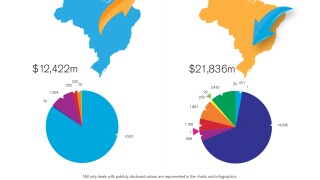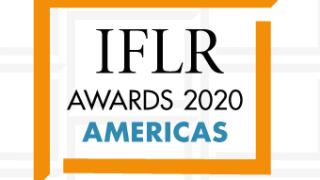Brazil
Award-winning finance lawyer Tatiana Guazzelli shares insights on fintech innovation, compliance, and long-term stability
New hires and promotions were made across the PE, corporate, M&A, finance and capital markets practices in Frankfurt, Munich, London, New York and São Paulo
Argentina, Brazil and Chile stood out for legal developments across M&A, banking and finance, and capital markets
Lawyers and industry leaders celebrated their achievements at the 13th annual event in New York City
LMG Life Sciences Americas Awards is thrilled to present the 2025 shortlist
José Luiz de Mello of Pinheiro Neto Advogados reflects on how the firm’s involvement in key government regulatory frameworks has helped it establish a strong client roster
New hires were made across the finance, energy and M&A practices in São Paulo, Dallas, New York and Dubai
The São Paulo-based finance lawyer explains why people outside the legal industry keep turning to him for investment advice and how learning from others keeps him motivated
Sponsored
Sponsored
-
Sponsored by Campos Mello AdvogadosFabiano Gallo, Carolina Marcondes Sant’Angelo, Carla Steinberg and Breno Cintra, Campos Mello Advogados
-
Sponsored by Campos Mello AdvogadosThe Brazilian oil and gas sector does not frequently use project financing and debt capital markets (DCM) to fund its activities unlike in other Brazilian capital-intensive sectors (for example, energy and toll roads) or in other oil markets (for example, onshore US). This results in reduced capital returns and creates difficulties for independent oil companies. Two recent regulations may change this situation.
-
Sponsored by Cescon Barrieu Flesch & Barreto AdvogadosIn Brazil, the public enforcement of antitrust infringements is carried out by the Administrative Council for Economic Defence – CADE. Since Law 12,529/2011 was enacted in Brazil, such enforcement has increased considerably, boosted by CADE through the use of leniency and cease-and-desist agreements (known as TCCs).






















